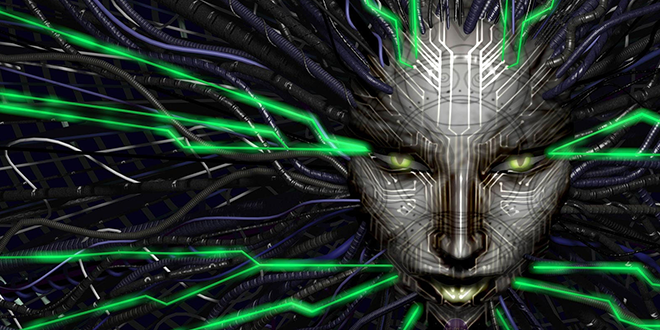Video games are a relatively new type of media and, arguably, of art. As any other form of art, it is subjected to continuous evolution and a shape shifting. Just like any other form of art, it tends to borrow from other arts. It happened before and happens all the time. Just think of modern art expositions. You’ll notice that many of the pieces will borrow deeply from the comic and movie world. Or, more simply, read a recent novel. It’s easily noticed that the pace, the scene change and the descriptions are pretty close to what you would see through the eye of a camera with the intercession of a director, in opposition to classic novels where the writers were inclined to describe the broader scene instead on focusing on details. Video games, of course, are not immune from this.
At the dawn of the gaming, videogames did not have much complexity aside of the few pixels you could see on screen. There was not a lot of story in Pac-Man aside “eat all the dots before the ghosts get you” and you certainly cannot say that “Asteroids” was a character-driven game. Games were simple as you get.
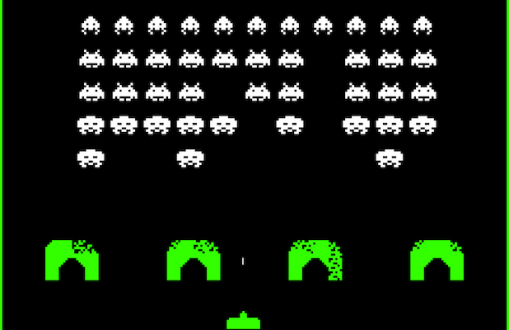
With time, videogames started to maturate as an art form. That’s the point videogames started to differentiate within itself as a media. They started to take all kind of shapes and forms. Story and narrative experience became increasingly important in many titles. Videogames are both a mass media and an art form, so it’s only natural for the industry to inspire from other media and art forms. In this specific context, they took inspiration from comics and movies to shape the kind of story-driven titles we enjoy these days.
What the hell has all this to do with videogame villains? –all the people reading this piece
Taking from other media, comes with consequences (not necessarily bad ones). Videogames inherited many of the tropes and character roles from the movie industry. Videogames hold, though, a very different way of narrating a story than movies or comics due of the fact that the fourth wall is thin if not nonexistent. The consumer of the media holds active part in it. It’s not a passive bystander, but the hero of the story (or the bad guy depending of the game). That, of course, means that the tropes and archetypes inherited from the old concepts of narration, works differently in videogames.
Christopher Vogler, in his book “The Writer's Journey: Mythic Structure For Writers” identified 7 character archetypes that make the basic figures that can be encountered in any narration. We could spend many words on how each of those roles work differently in video games rather than any other work of fiction, but for the purpose of this article let’s limit ourselves to two of them: the Hero and the Shadow. Let’s give a quick breakthrough of these two figures.
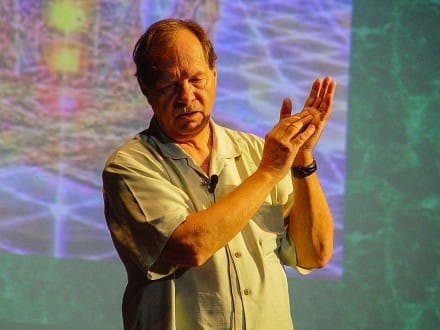
The Hero is, more often then not, the main character of the story and the one the player impersonates. It’s the character that faces the travel (be it physical or introspective), the pursuer of the epic quest, the one who moves in the story. The player (or viewer or reader) is supposed to identify in its struggles and its misfortunes. The hero must overcome its challenges to reach its objectives and grow in the process. It has, so to say, overcome the shadow.
The Shadow is a bit of a less definite character. It’s not necessarily a physical being. It could be a person, or could be a more abstract entity or even just a situation. In Assassin’s Creed, the shadow is embodied by the Templars. In Depression Quest the shadow is the crippling depression the hero must overcome in the daily life. In The Last of Us the shadow is the imminent menace of extinction of the human species. In Apocalypse Now, the shadow is Kurtz. In either of these cases and any other possible one, the Shadow is what actually moves the story. It’s the creator of the obstacles the hero must overcome, the shaper of its destiny, the one that gives purpose to its journey. Sometimes the Shadow is not presented as an epitome for evilness. It is often represented as a hero of its own story that took a very different path.
Those are pretty much the two roles as Vogler describes them. In any narrative experience, it’s the clash (physical, intellectual or even just conceptual) between the hero and the shadow that makes the story.
Videogames offer a very peculiar view of these two traditional narrative roles. When you bring down the fourth wall or, at least, you thin it, your perception of the hero and the villain is going to vary accordingly. And that brings me finally to the point.
In videogames, specifically in heavily story-driven videogames, the shadow holds a much more important part than the hero.
To understand why, let’s pick a case study: Far Cry 3. If you played that game, now that it came into discussion, I bet the first image that flashed in your mind about it was the hero. Or a landscape. I bet 10 bucks worth of hotpockets that you thought of Vaas “the definition of insanity” Montenegro.
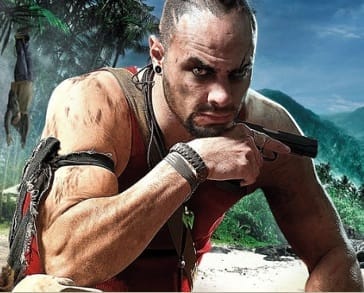
Vaas entered the collective imagination of the gamers for being an all-around well characterized and well written villain. It’s not just “the guy who kidnapped my friends”. He’s the nemesis of the protagonist, the embodiment of chaos, the representation of the hostility of the environment the main character finds himself in. The hero will have to embark in a quest to dominate this space and then collide with its avatar. Vaas is violent, sadistic, unpredictable and Machiavellian. His actions and the way he relates to the main character are studied to remind the player only one thing: “You’re not in your home anymore. This is where the law of the strongest applies. In this island everything will jump at your throat and I’m the king here”. The player then is sent to a quest to claim the island as its own to finally confront the shadow (let’s ignore the fact that Volker exists. We all know Vaas is the real deal in that game).
Now let’s take Far Cry 4. Let’s do again the little experiment we did earlier. If you played the game, reading the title chances are you either thought of Pagan “let me taste your mother’s ashes real quick” Min or of a murderous rampage while riding an elephant. Acceptable in either case.
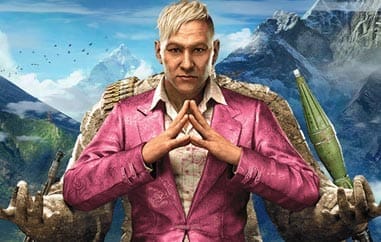
As with Vaas, Pagan Min is the character that real stuck with in fans’ heads. He represents the charming but dangerous face of power. He’s narcissistic and dedicated to create a cult of personality around himself. He’s also unremorseful and will do anything, regardless of consequences, to reach his objectives. But it’s not just that. To the main character, Pagan Min is a shadow of the past and someone that links him to that place.
Now, why did I pick two Far Cry titles to show the importance of antagonists? Far Cry 3 and 4 are two games that are known to have pretty good villains and uninteresting… well, anyone else. Despite that, the mere presence of well-characterized antagonists, is enough to keep the storytelling together where in any other media it would be extremely insufficient.
Why is that the case for the videogames? I think the reason is to be researched in the loss of the fourth wall. In movies and comics, a great deal of the writing goes into characterizing the main characters. The writer ideally wants you to care for them, cheering for them and wanting them to succeed. Therefore, it invests a great deal of details on their backstory, their personalities and everything you as a consumer need to identify with such characters. That is true for videogames, but in a less crucial extent.
In videogames, the main character is not just a creature of the writer. We see the world through his eyes. His actions are our actions. Our decisions become his decisions. Our thoughts are his thoughts. That means that it’s for us generally easier to identify with him compared to other medias. If the character itself is not perfectly characterized, we would fill the blanks. Hell, some of the best characters don’t ever say a word while the characterization is given through the way the surrounding environment reacts to them (think of Gordon Freeman or Link).
That means that the villain (the shadow) will have an even greater role in holding the story together. Not only because we modified the classic notion of the role of the hero in the story, but also because of the inherent way videogames function. Videogames are objective oriented. We need to reach a target to go forward in the game and everything in the game is a mean to that end. The villain of the game is the greatest and most unreachable of those objectives. The point of the whole storytelling is to beat the shadow. So if the shadow is not interesting enough to make us improve in our skills and proceeding in the story, we simply become less interested in continuing to play.
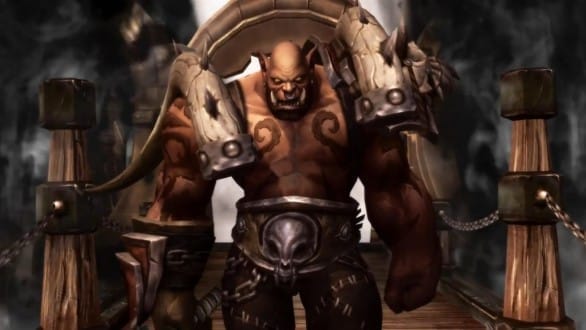
To show this point further, let’s consider another game series: Final Fantasy. In Final Fantasy, the roles of the hero and the shadow are taken in a more traditional sense. We have the hero(es) that embark in the quest to save the world and the villain that must be stopped. The fourth wall, though, is not as thin as in games where you control a single character or are supposed to immerse yourself in the main character. The storytelling of the Final Fantasy series, follows a more traditional and linear way of narration. It focuses less on the direct actions of your characters and more on their relation with each other or the rest of the game (both events and NPCs). As a result, the writing style is closer to the classic method. You’ll experience more of your characters. Their backstory, their sentiments, their struggles will have a more important part in the game’s narrative. That’s because Final Fantasy games are not designed to make you immerse directly in the characters you play. They want to keep the heroes of the story separated by the one who moves them. The developers want you to immerse in the universe as a whole.
To do that, the writers can’t afford to have uninteresting main characters since this time the players will expect them to be nuanced and fascinating. They are not our avatar in the game but a completely different entity that we guide. So we’ll be not able to experience the story like we were there in the way we mentioned in earlier examples. That means that the characters and the world as a whole need a vastly greater scrutiny while writing them to make them appealing to us. The funny thing is that none of this diminishes the vastly important role of the villain in any way.
The villain is still the end game boss, the one whose purpose to make the characters that we care so much fail, the entity that our heroes need to conquer. Since in this kind of narrative the writers invested so much to make us care about the world and the heroes, the villain that wants to destroy all of that will have to be even more charming and interesting. It’s no coincidence that the Final Fantasy Saga has some of the most iconic villains of the videogame history (just think of Kefka, Sephiroth or Golbez).
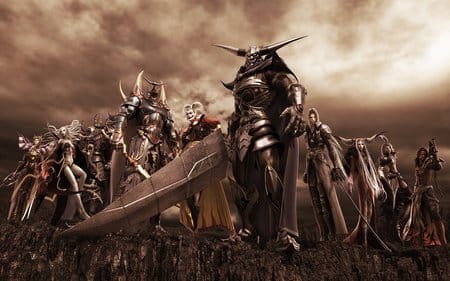
There is no heavily story driven game, in my experience, that can afford to have a bad villain. Not The Witcher, not Valkyria Chronicles, not Arcanum, not System Shock 2. After all, defeating our own shadows is a natural instinct of all human beings. If we want to feel like a hero, we need a villain worth of a hero. Someone that makes the entire journey that we take just to defeat it worth the hassle. If you want me to venture in the lair, make me care about slaying the dragon.
Is there a video game villain that really stuck with you? Let us know in the comments
Have a tip, or want to point out something we missed? Leave a Comment or e-mail us at tips@techraptor.net
